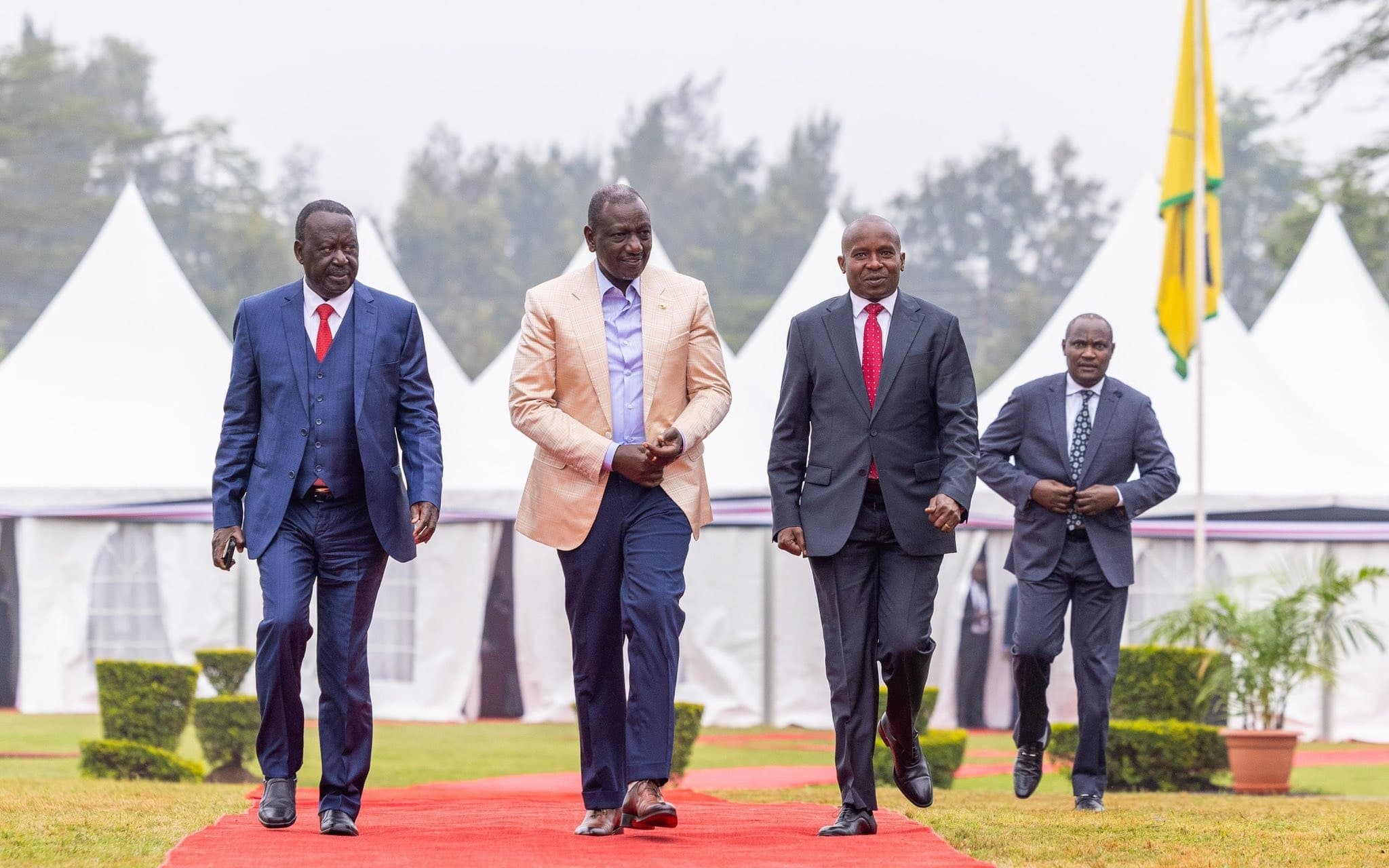We're loading the full news article for you. This includes the article content, images, author information, and related articles.
President William Ruto’s aggressive anti-corruption drive has ignited a backlash in Parliament, with lawmakers across the political divide uniting to protest his recent bribery accusations and a new anti-graft taskforce they argue bypasses legal channels.

Here is your article rewritten in the expert, structured, long-form style you requested:
Nairobi — A storm is brewing in Kenya’s political arena as President William Ruto faces his sternest leadership test yet, following accusations that Members of Parliament are routinely corrupt. The President’s unilateral creation of a new anti-graft taskforce has triggered bipartisan outrage, deepening rifts between the Executive and Legislature and raising constitutional questions about the balance of power.
The controversy erupted after Ruto announced the formation of an 11-member Multi-Agency Team on Anti-Corruption, housed within his office. The taskforce, unveiled earlier this week, was presented as a bold move to fast-track investigations and restore integrity in public service. Yet it immediately drew the ire of lawmakers, many of whom said the initiative undermined existing institutions such as the Ethics and Anti-Corruption Commission (EACC) and the Office of the Director of Public Prosecutions (ODPP).
Both National Assembly and Senate leaders castigated Ruto for bypassing Parliament and constitutional oversight processes. They accused him of centralizing power and weakening independent watchdogs, describing his approach as both politically reckless and legally questionable.
What has stunned observers is the unity of purpose across Kenya Kwanza MPs and the opposition Azimio coalition. Both camps have condemned the President’s blanket allegation that legislators demand bribes to pass bills. Parliamentary leaders have demanded that Ruto either table evidence or retract his statement, arguing that his comments tainted the entire institution’s legitimacy.
In protest, several MPs have threatened to stall debate on key government bills, budgets, and legislative priorities until the matter is resolved. “We cannot allow Parliament to be reduced to a rubber stamp under constant suspicion,” one senior lawmaker told reporters, warning of an unprecedented legislative blockade.
The battle has also spilled into the courts. Civil society organizations quickly filed a petition challenging the legality of the new anti-graft taskforce, leading the High Court to issue a temporary suspension of its operations pending a full hearing. Petitioners argue that the President’s move violates the Constitution, which vests investigative and prosecutorial powers in established independent bodies.
“The danger here is institutional capture,” said a Nairobi-based governance analyst. “When anti-corruption efforts are run directly from the presidency, the risk of politicization is extremely high.”
Ruto’s allies, however, insist the President is responding to the entrenched rot of corruption that has slowed economic reforms and eroded public trust. They argue that honest MPs and officials have nothing to fear from a supplementary taskforce. “Kenyans want results, not excuses,” one Kenya Kwanza MP declared, framing the initiative as evidence of Ruto’s resolve to dismantle cartels and impunity.
The standoff comes at a delicate moment for the Ruto administration, which is pushing economic reforms, tax restructuring, and infrastructure programs. A protracted clash with Parliament could paralyze budget approvals and derail policy rollouts. Analysts note that without legislative goodwill, even the President’s flagship development agenda could grind to a halt.
Beyond immediate political risks, the dispute has reignited debates over Kenya’s anti-corruption framework. Successive administrations have launched high-profile anti-graft bodies and commissions, but critics argue these initiatives often duplicate mandates, drain resources, and collapse under political pressure. The standoff has also raised fears of further eroding public trust in institutions already struggling with credibility deficits.
Political observers suggest that Ruto must urgently engage Parliament in dialogue to defuse the crisis. Failure to do so could embolden MPs to mount a sustained rebellion that cripples legislative processes. Meanwhile, the judiciary’s ruling on the taskforce will be pivotal in determining how far the President can stretch executive authority in Kenya’s anti-corruption war.
For now, the President stands at a crossroads: pursue unilateral anti-graft measures and risk institutional backlash, or seek a consensus-driven approach that balances the fight against corruption with constitutional safeguards.
Keep the conversation in one place—threads here stay linked to the story and in the forums.
Sign in to start a discussion
Start a conversation about this story and keep it linked here.
Other hot threads
E-sports and Gaming Community in Kenya
Active 9 months ago
The Role of Technology in Modern Agriculture (AgriTech)
Active 9 months ago
Popular Recreational Activities Across Counties
Active 9 months ago
Investing in Youth Sports Development Programs
Active 9 months ago